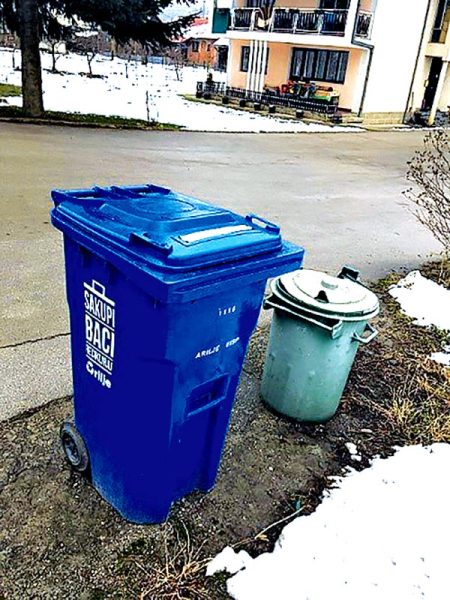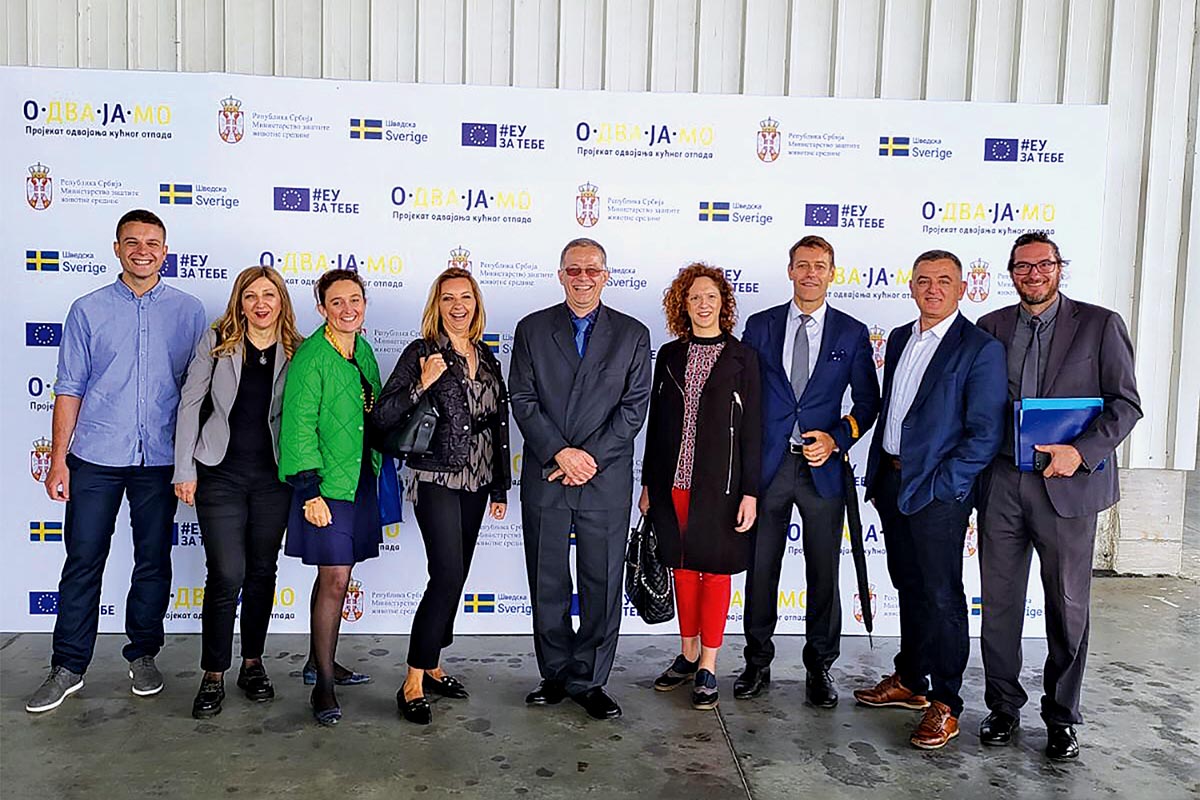Thanks to joint Serbian, EU and Swedish efforts, Serbia’s national objectives and standards are being aligned with those expected across most of Europe. Sweden has played a key role in helping Serbia turn strategies and plans into practise
Could waste management in Serbia be at a historical turning point?
– Years of research, planning and development have provided the basis for largescale investment in the Serbian waste management sector. Waste infrastructure projects have been financed and are starting to be implemented across the country. Sweden has been Serbia’s partner in many of these steps and remains here to support the work ahead.
What’s in place and what still needs to be done?
– We have come a long way… Serbia’s waste policy framework is nearing completion. The strategies, plans and programmes that define ‘WHAT’ needs to be done for Serbia to have a modern waste management system have been developed over the last six years.
Thanks to joint Serbian, EU and Swedish efforts, Serbia’s national objectives and standards are being aligned with those expected across most of Europe. Serbia now has a national Waste Management Programme (2022-2031) and Action Plan, as well as formal plans to meet standards in areas like Industrial Emissions, Landfills and Biodegradable Waste.
There’s also been planning at the local level in Serbia, supported by Swedish expertise. The Municipality of Čajetina and public utility company ‘Zlatibor’ have been assisted by the Standing Conference of Towns and Municipalities and the Swedish Association for Local Authorities and Regions in planning improvements across the entire range of municipal waste services.
In order for these plans to become a reality, it’s necessary to be honest about the current situation. Almost half of Serbia’s municipal waste continues to end up in unsanitary dump sites. Photos regularly appear on social media showing waste dumped in rivers, dumpsites on fire and overflowing waste bins. With this legacy, progress has to be tangibly demonstrated in order for it to be credible. This means recording improvements on Instagram, Facebook or other sites in order for them to become ‘real’.
How will Serbia’s waste management system improve?
– Massive investment in waste infrastructure, such as sanitary landfills, cleaner trucks, bins and treatment facilities, are a large part of the solution. It was the same for other EU Candidate Countries. However, infrastructure alone cannot deliver the required new standards. Legislation must make it clearer where responsibilities to make the necessary changes lie, to invest, operate, inspect, enforce and communicate.
Three years ago, over 80% of Serbia’s municipal waste ended up being dumped in non-sanitary landfills, while that total is now just less than 50%. Serbia already has projects financed to reduce this unsanitary disposal to less than 20%, but we have to go further, for two reasons: 1. Many of these actions are not sufficiently visible by ordinary citizens; 2. Sanitary landfilling is no longer enough. In my experience, Serbs are aware of the global environmental crisis and are aware of better standards, like recycling, in EU countries.
With the cooperation of citizens and international partners like Sweden, better waste management will soon be visible nationwide across Serbia
Sweden has played a key role in helping Serbia turn the strategies and plans (on paper) into practise (in reality). For example, in 2015, in cooperation with the Serbian Ministry of Environmental Protection and the Čačak City Administration, Swedish funds were used to construct a waste transfer station in Čačak. This facility provided the ministry with a practical example of how 30,000 tons a year of both recyclable and residual waste could be transferred and transported separately. It also enabled Čačak to close its old city dumpsite.
Serbia’s waste management will develop through the building of public services, layer upon layer. Investments and waste sector reform must keep advancing to the next level. At a minimum, all citizens should have access to full collection coverage and sanitary landfilling. Preparation for recycling, green waste and food waste treatment, special waste streams and hazardous waste collection, remediation of contaminated sites and more will follow. This is ‘HOW’ Serbia’s soil, water and air will become less polluted by waste.
Could you tell us more about the Odvajamo recycling project?
– The ‘Odvajamo’ Project is the first largescale example of this progressive approach. Cooperation between the Serbian Ministry of Environmental Protection, 17 local authorities across Serbia, the EU and Sweden is providing citizens with over 90,000 wastebins and containers, 26 refuse collection vehicles, a communication campaign and investments by national and local authorities.
The separation of waste at ‘source’, by those who generate the waste in households and small businesses, is an essential step for the recycling of paper, plastics, metal and glass. Achieving just 10% high quality separation out of the 215,000 tons of municipal waste collected a year in these local authorities would add over 20,000 tons of secondary material to the economy. More recycling means less waste going to landfill, reduced greenhouse gas emissions, more material for Serbia’s recycling industry and more job opportunities.

The Odvajamo [We Separate] project is not an isolated event. Sweden’s pilot project in Arilje, implemented four years prior, built the experience of applying these standards under Serbian conditions. Research on European experience and consultation with local and national policymakers ensured the plans were realistic.
The quality of the initial collections has been as good as most EU countries would expect, with over 90% clean material. All participating municipalities are expected to have launched their new services by March 2023. Operating separated waste systems will not always be easy. Like many modern climate or waste actions, the new system requires people to change their behaviour, which can prove difficult. There must be trust and cooperation between citizens and local authorities. The cost of waste management will inevitably increase; sadly, nothing is as cheap in the short-term as throwing waste into a dumpsite or a river. The benefits will become apparent over time. I have not heard of anyone in another country, or in Arilje, who would go back to the old ways.
Every Serbian citizen should expect to be provided with separate collection services (which is stipulated under Serbian law) and each citizen should be ready to do their part by putting the correct materials into the correct bins. The experience of these 18 pioneering municipalities will form the basis of normal, modern waste management in the years to come.
What’s next for waste management in Serbia?
– Firstly, to reduce waste wherever possible. Then to build a waste management system that improves continuously. Every type of waste needs to find its proper place.
Major new investments in waste management have been announced by the Serbian Government and international partners, to be implemented over the next seven years in the regions of Novi Sad, Sombor, Nova Varoš, Užice, Valjevo/ Ub, Kraljevo, Niš, Pančevo and Kragujevac. With the cooperation of citizens and international partners like Sweden, better waste management will soon be visible nationwide across Serbia. Being visible is not a sign that the plans are complete, but it does prove that they have started being implemented.
